
Lab Equipment
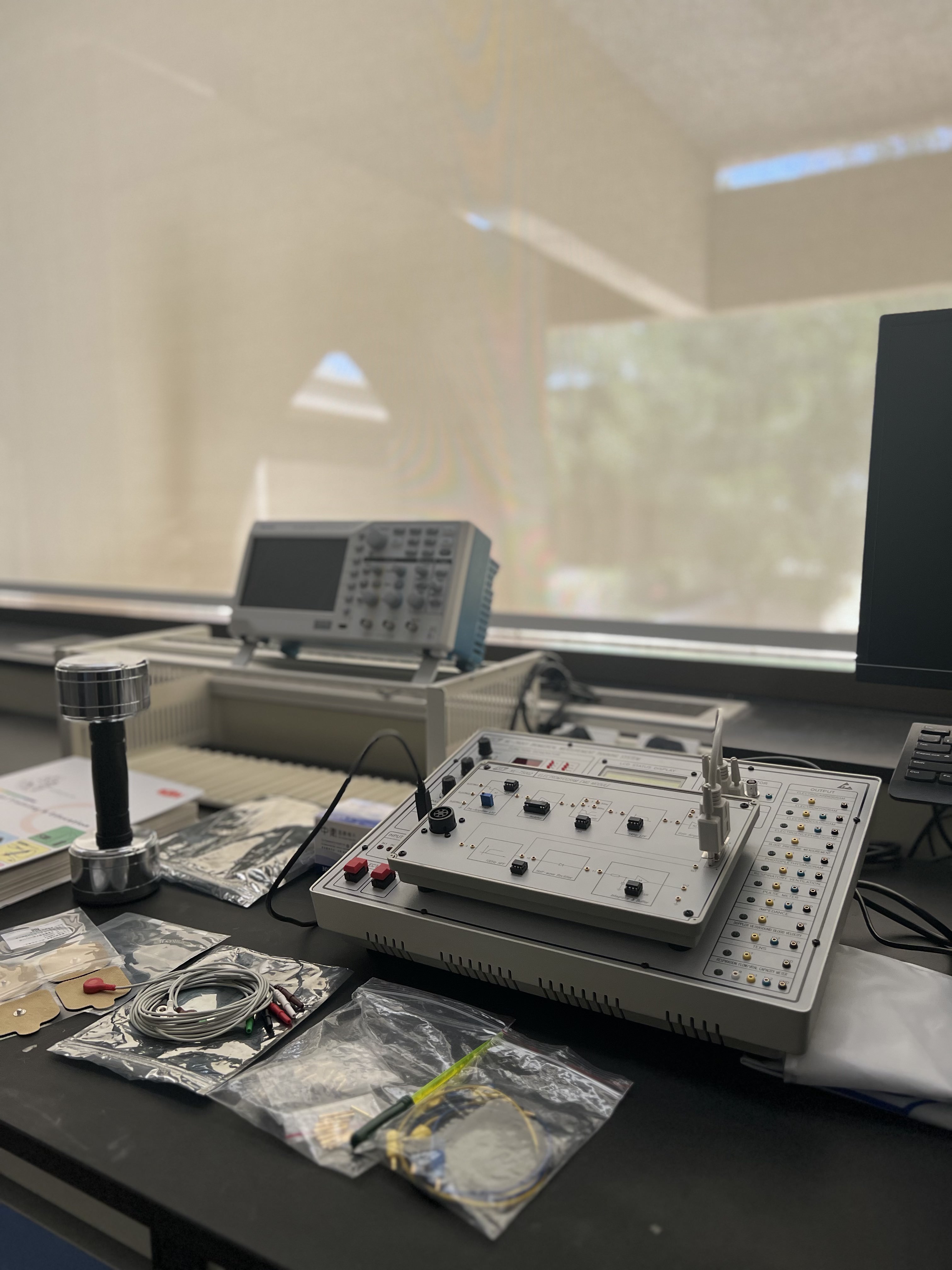
Electromyogram (EMG)
Understand the electrical activity of muscle under the isotonic and isometric conditions and simultaneously detect the amount of muscle force. From the measured waveform, students can realize the motion function made by the specific skeletal muscle.
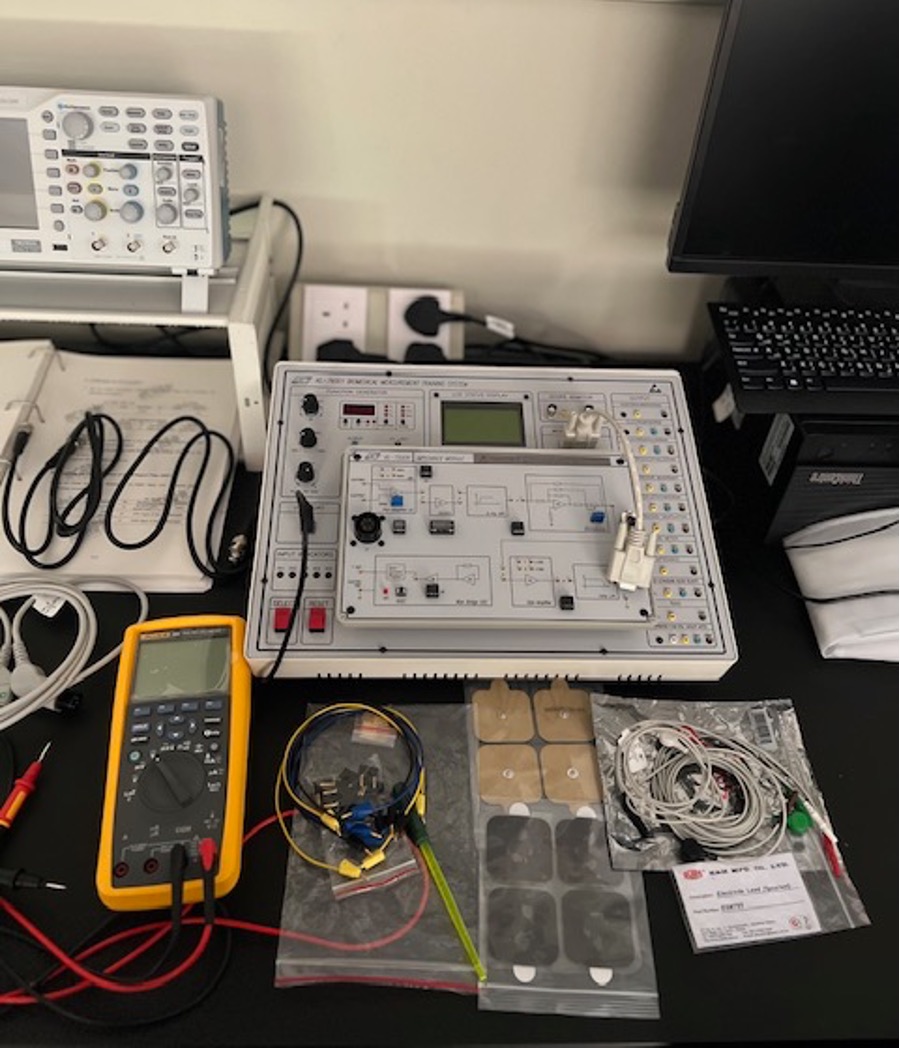
Impedance
Realize how to detect the body impedance. When students Inject a constant alternating current to the body and the alternating current passes through the chest, a change of body impedance will be detected when the chamber volume of both the ventricle and atrium is changed.
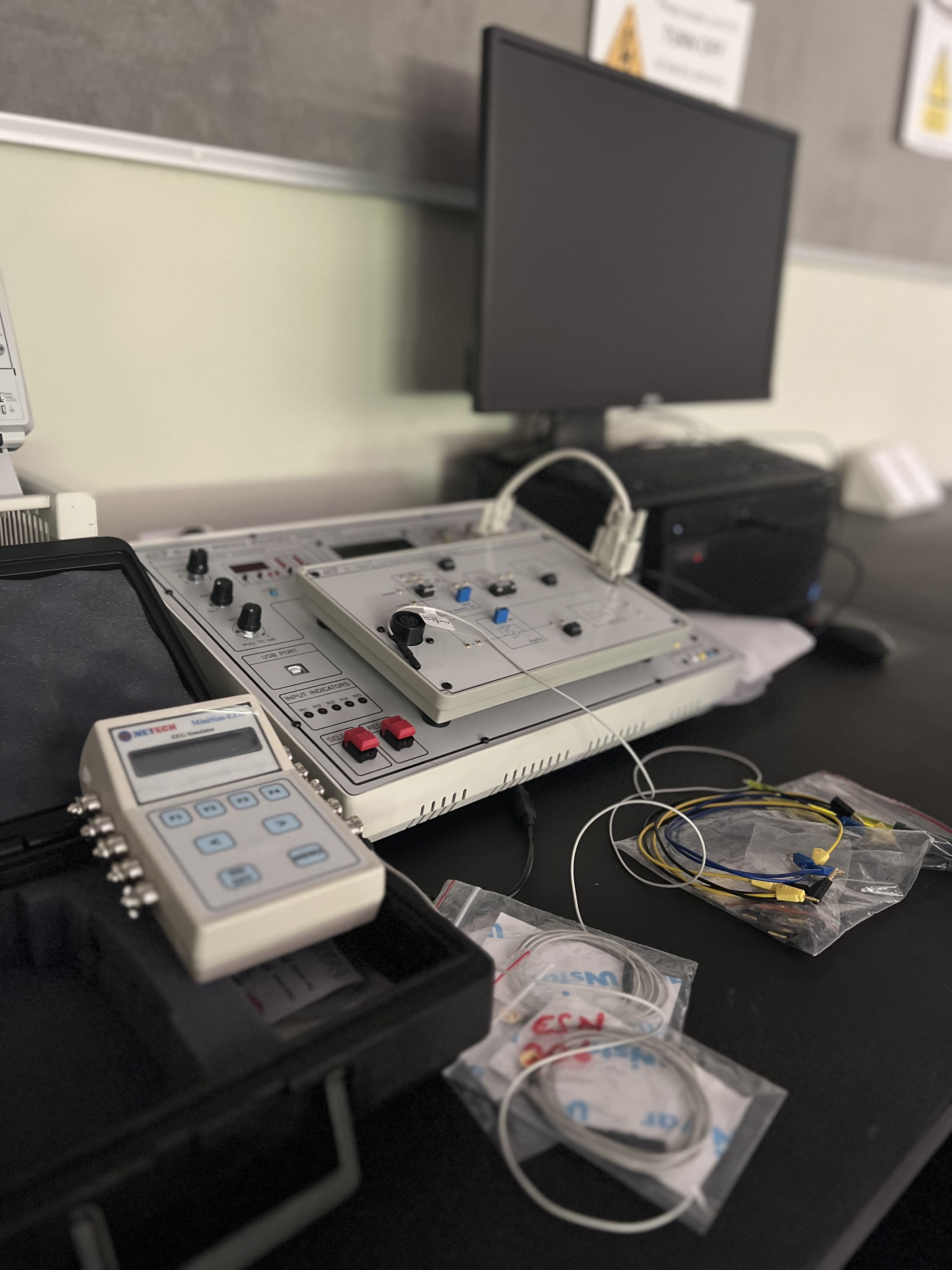
Electroencephalogram (EEG)
Understand the electrical activity of the brain. In the experimental procedure, the α-wave will be evoked when the eyes open and close. Because the EEG signal is very weak, this module implements a high gain amplifier and filters to reduce noise.
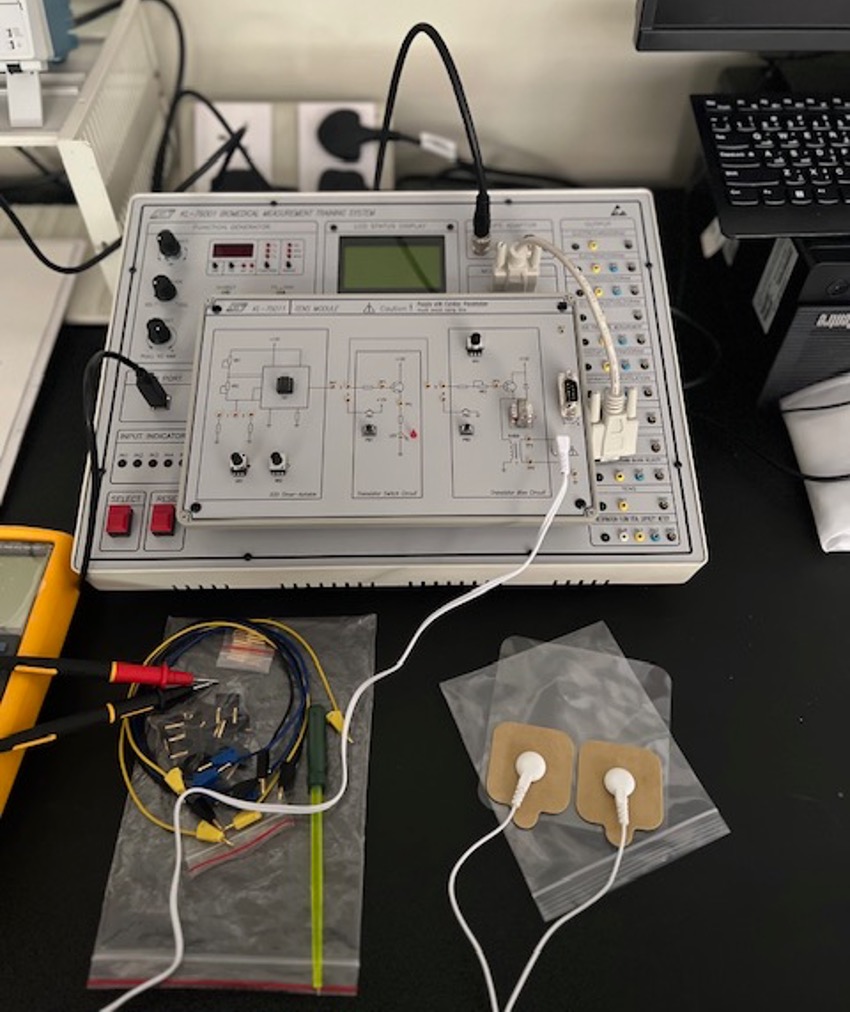
Transcutaneous Electrical Nerve Stimulation (TENS)
Understand the fundamental circuit theory of the transcutaneous electrical nerve stimulation (TENS) and the physiological responses of muscles which are stimulated by different frequencies and amplitudes.
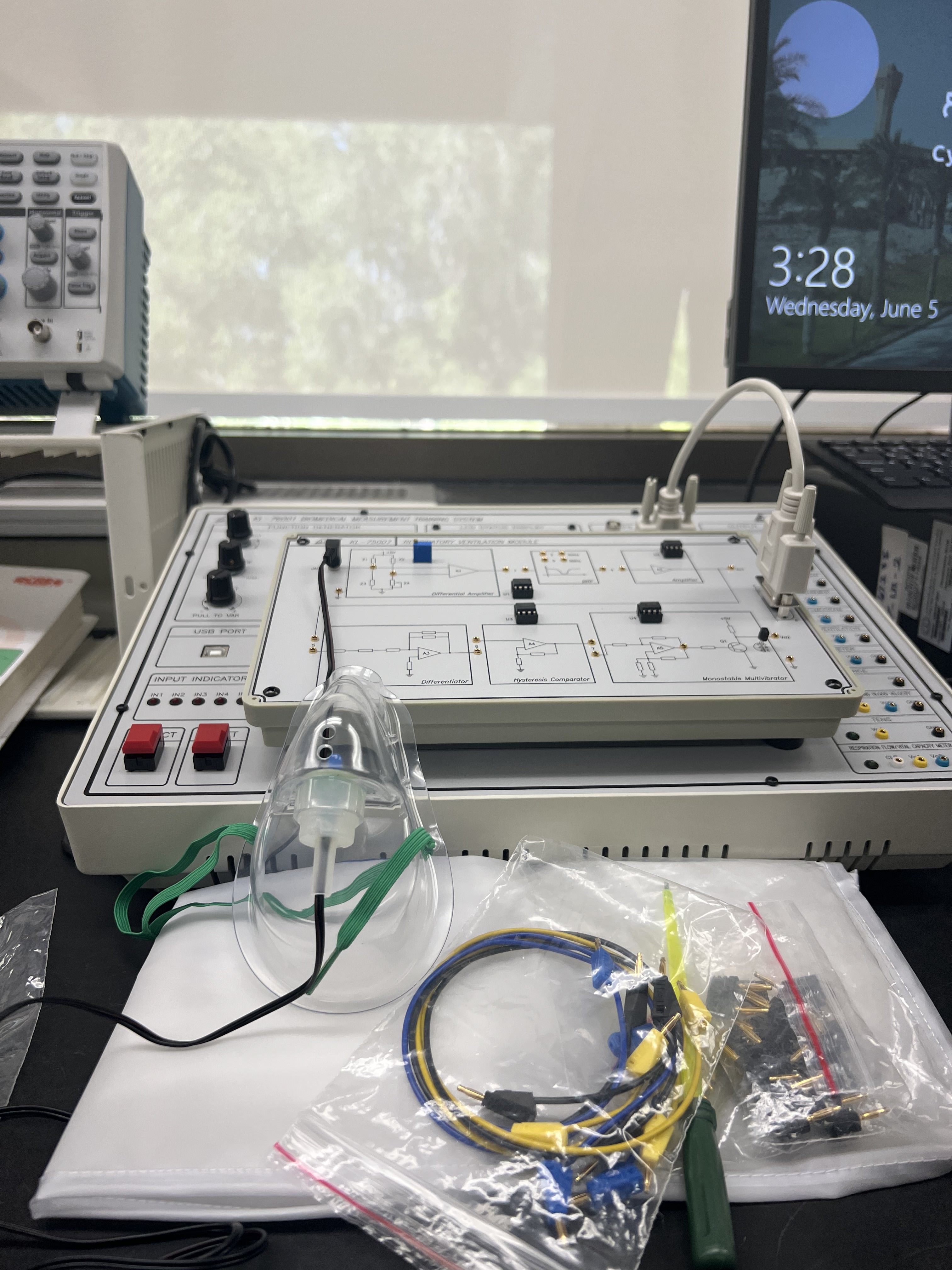
Respiratory Ventilation
After practicing using temperature sensors and configuring circuits, users can understand how to detect and process respiratory signals including stop breathing capacity, over-respiration, and respiratory rate.
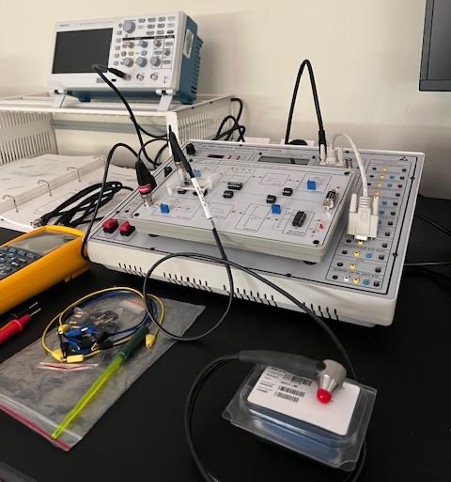
Doppler Ultrasound Blood Velocity
Understand the operating principles of ultrasonic sensors, how the ultrasound probe measures the velocity of blood flow, and the fundamental circuit theory of the ultrasound probe.
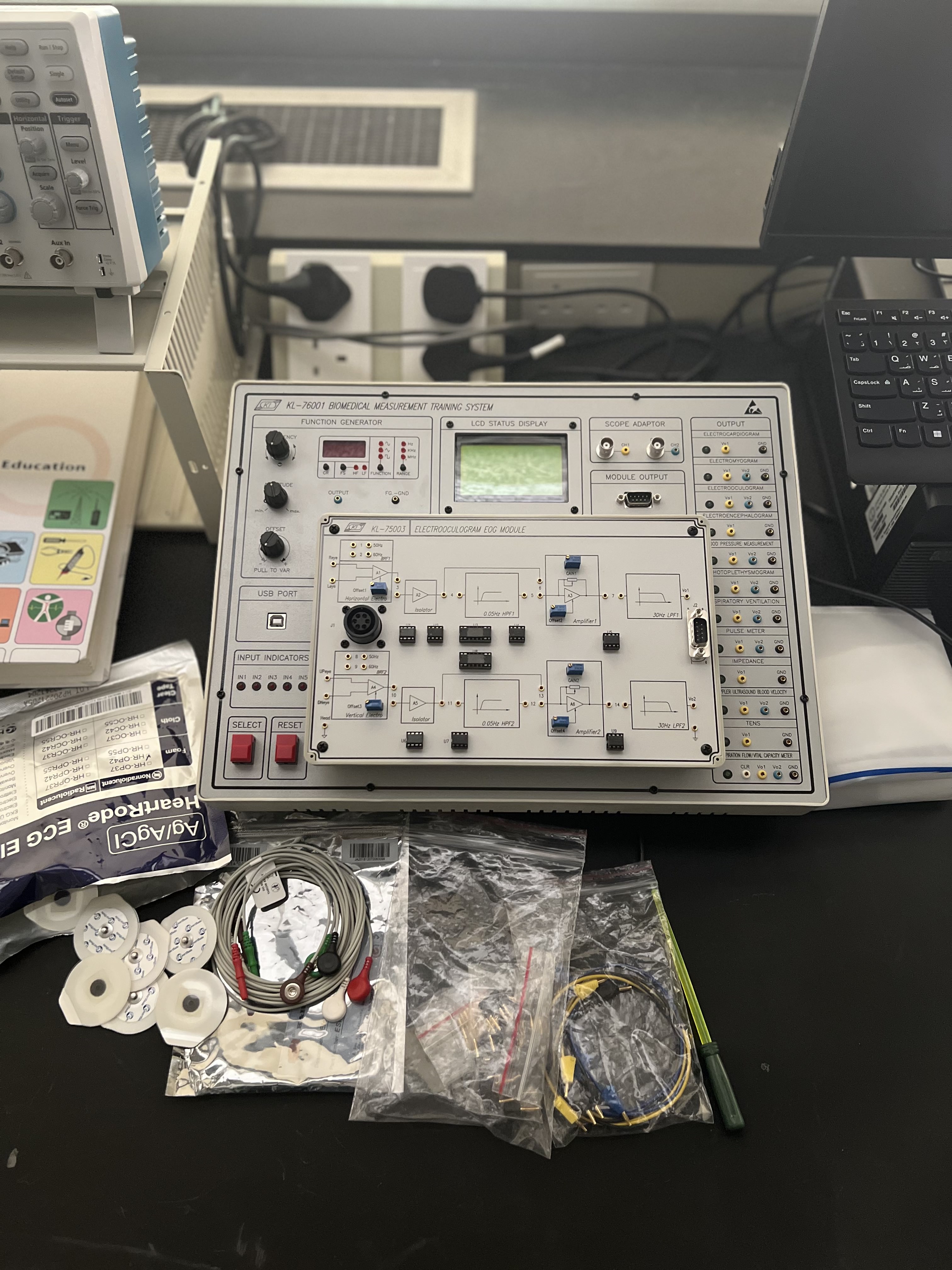
Electrooculogram (EOG)
Have a thorough grasp of the electrical activity of the eye muscle under eye movements. Two kinds of electrical signals from horizontal and vertical movements of the eyeball are detected and processed in the module.
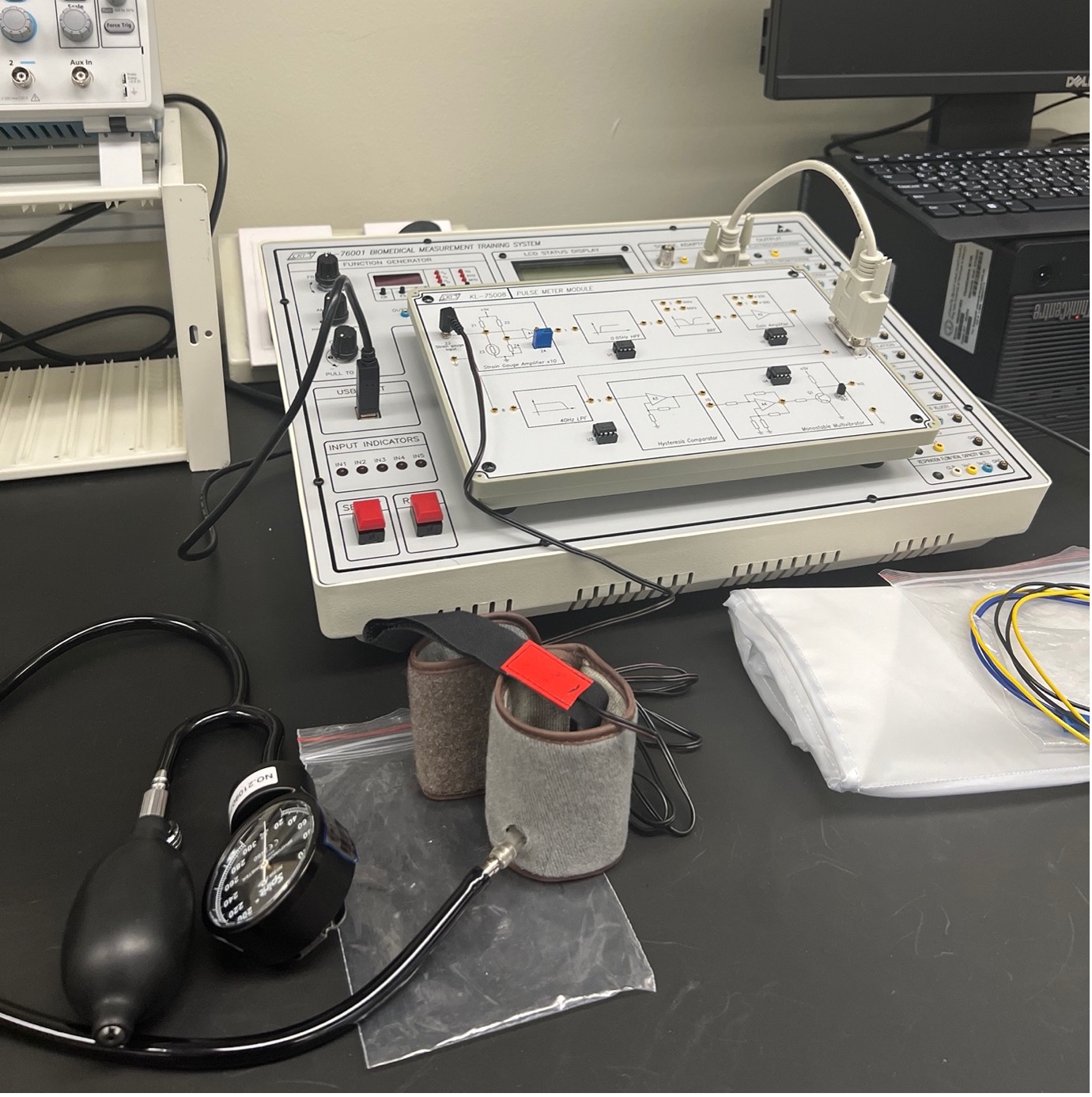
Pulse Meter
Understand how to use the strain gauge and configure the circuit to detect and process the waveforms of the radial pulse and learn the characteristics the vascular under various transmural pressure conditions.
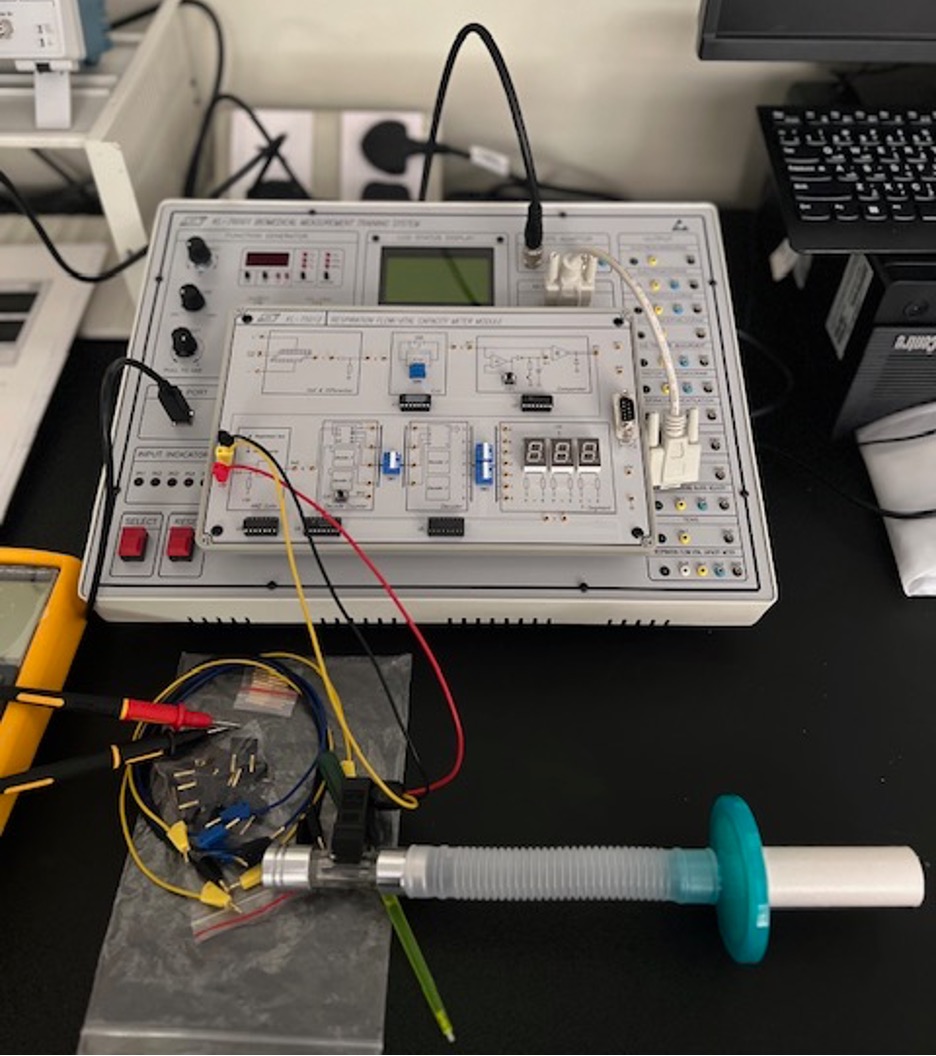
Respiration Flow/Vital Capacity Meter
Understand the respiratory parameters (including the respiratory volume and respiratory flow) and the measurement of the basic circuit.
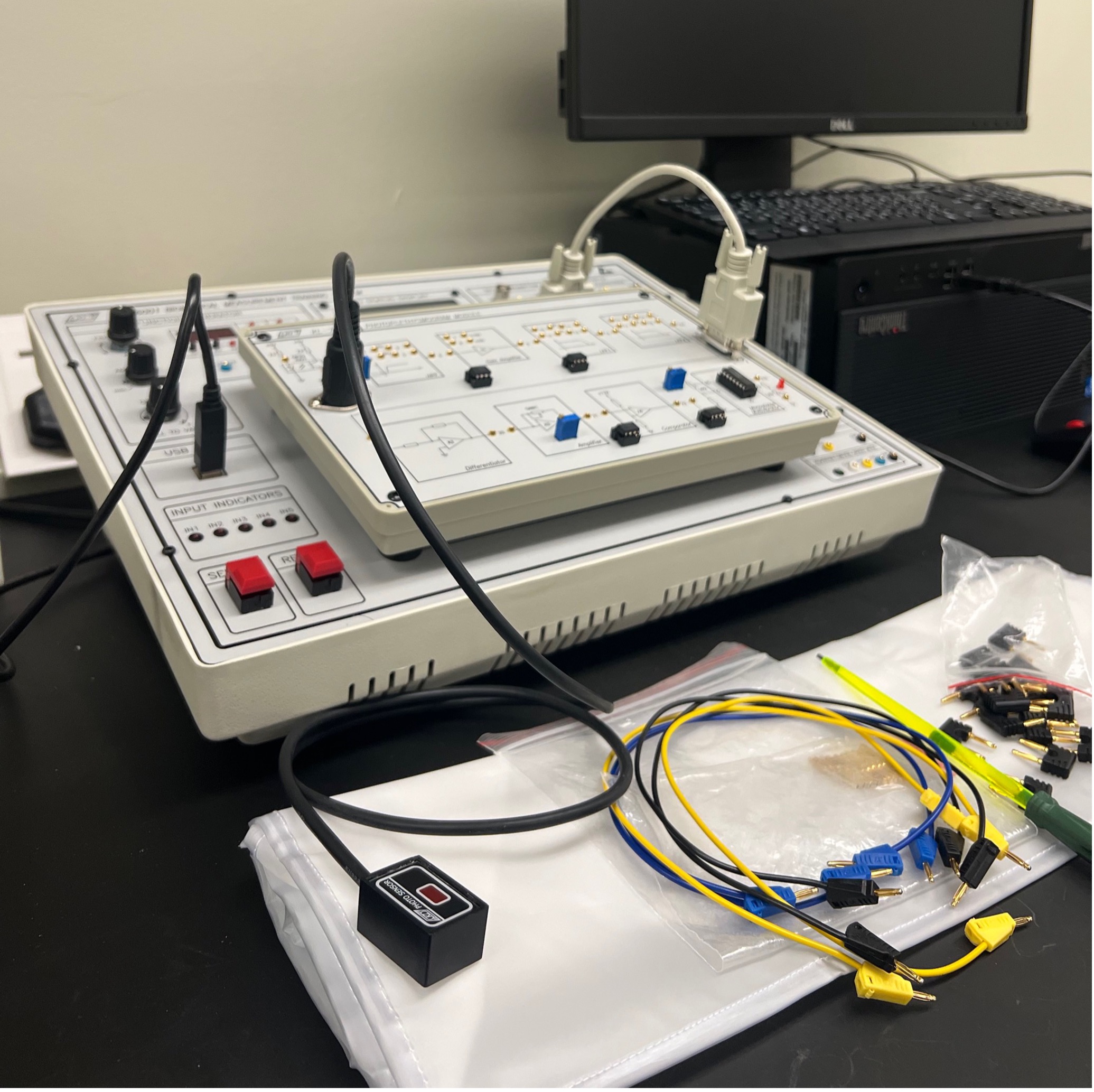
Photoplethysmogram (PPG)
Understand how to use the noninvasive method and configure the circuit to detect and process the Plethysmogram. The volume change in blood capillary is detectable by an infrared photocoupler.
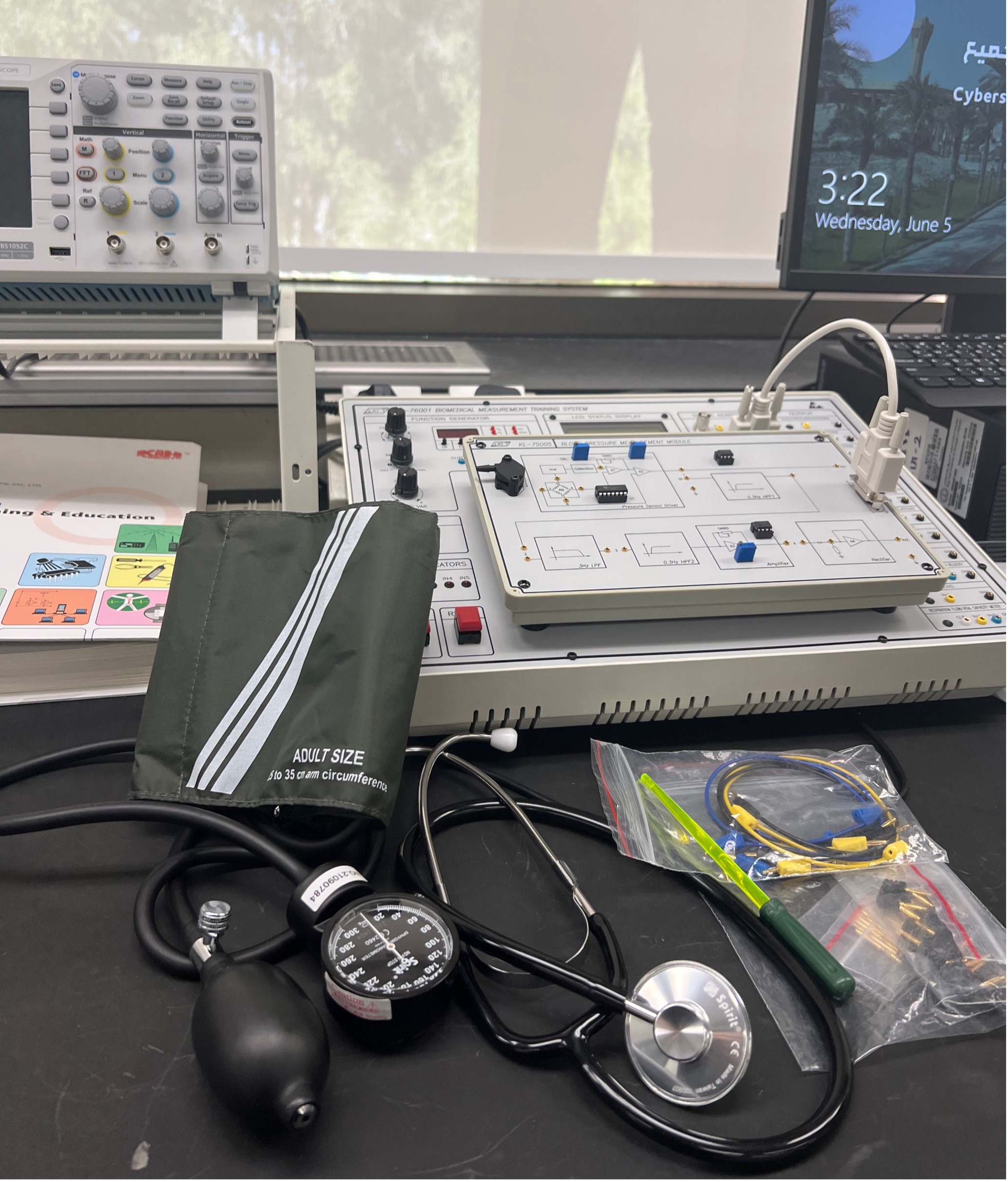
Blood Pressure Measurement (BP)
Realize how to measure the blood pressure noninvasively and compare the accuracy between the measurement from the auscultator and from the oscilloscope.
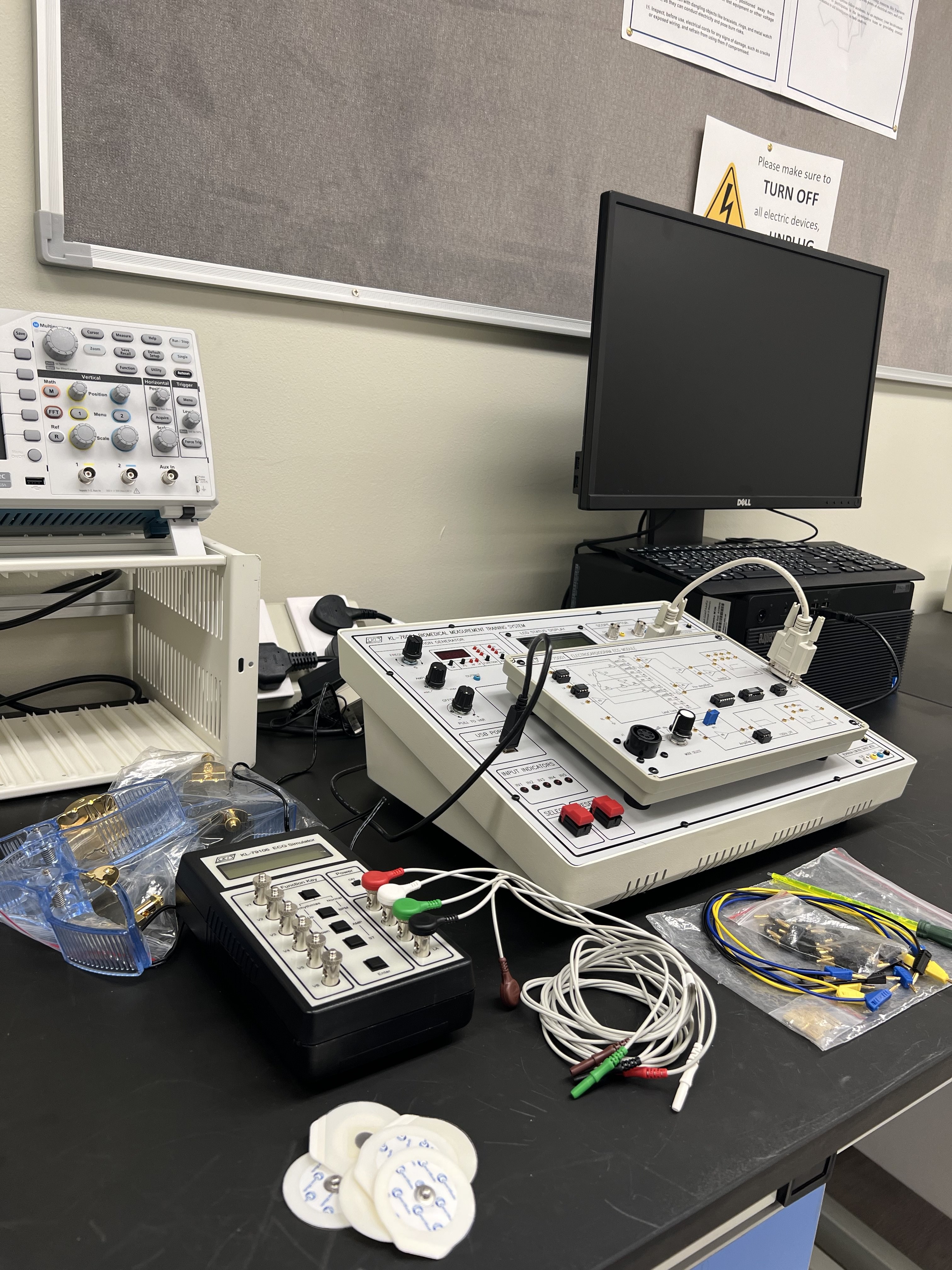
Electrocardiogram (ECG)
This measurement module uses 6 limb leads to detect the electrocardiogram. Students can easily learn how to design the Wilson network and the isolated circuits.